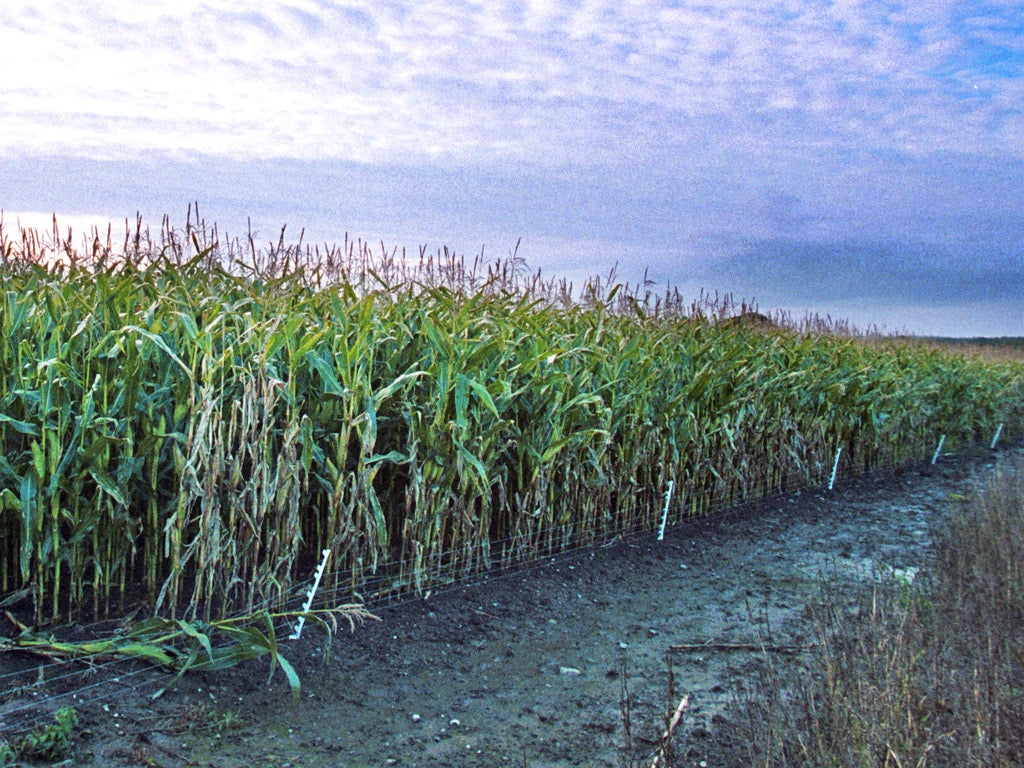GM crops: Public fears over 'Frankenstein food' may be easing, Independent poll reveals
But pressure groups warn they will maintain their strong opposition

Your support helps us to tell the story
From reproductive rights to climate change to Big Tech, The Independent is on the ground when the story is developing. Whether it's investigating the financials of Elon Musk's pro-Trump PAC or producing our latest documentary, 'The A Word', which shines a light on the American women fighting for reproductive rights, we know how important it is to parse out the facts from the messaging.
At such a critical moment in US history, we need reporters on the ground. Your donation allows us to keep sending journalists to speak to both sides of the story.
The Independent is trusted by Americans across the entire political spectrum. And unlike many other quality news outlets, we choose not to lock Americans out of our reporting and analysis with paywalls. We believe quality journalism should be available to everyone, paid for by those who can afford it.
Your support makes all the difference.More people support rather than oppose the growing of genetically modified crops and more of them are prepared to buy and eat GM foods than not, according to a survey for The Independent.
As the Government launches a drive to persuade people to eat more GM foods, the ComRes poll suggests that public fears about so-called "Frankenstein food" may be easing. Asked if they would support the growing of GM crops in the UK, 47 per cent agreed, while 42 per cent disagreed and 11 per cent replied don't know. Men (57 per cent) were more likely than women (38 per cent) to support the idea.
Liberal Democrat supporters (59 per cent) were more likely to back the growing of GM crops than people who intend to vote for Labour (52 per cent), the Conservatives (50 per cent) or the UK Independence Party (46 per cent).
The survey of 1,000 people found that 49 per cent agreed that they would have no problem buying or eating GM foods if they were sold in the UK, while 42 per cent disagreed with this statement and 9 per cent were don't knows.
Again, men (59 per cent) were more likely to agree than women (39 per cent). People aged 18-24 (60 per cent) were more likely to say they would buy and eat GM produce than other age groups. Lib Dem supporters (57 per cent) were more favourably disposed to buying and eating it than those of other parties.
Owen Paterson, the Environment Secretary, called last month for the UK to lead a farming revolution in Europe, arguing that GM crops would cut fertiliser and chemical use while feeding the world's poorest countries.
Public opposition in the UK appears to have reduced since the Blair Government held a consultation exercise, including 650 public meetings, in 2003. Of the 37,000 people who responded to questionnaires, a majority (54 per cent) said they never wanted to see GM crops grown in Britain; 18 per cent said they would find the crops acceptable only if there were no risk of cross-contamination; 13 per cent wanted to see more research; only 8 per cent they were happy to eat GM food and only 2 per cent said the crops were acceptable in any circumstances. The public hostility stalled plans by Tony Blair to push the technology.
Although the ComRes findings will be welcomed by ministers, pressure groups warned tonight that they would maintain their strong opposition to GM crops.
Peter Melchett, policy director at the Soil Association, said: "These results are completely out of line with all recent polls of public opinion about GM. When asked, 61 per cent of UK farmers, who should know more about the risks of GM farming and food, said they would be willing to grow GM crops if they were available, which they are not. However, only an extraordinarily low 15 per cent would be willing to eat GM food, and far more, 24 per cent would eat organic food in preference."
Pete Riley of GM Freeze said: "These results do not follow the trends found by recent UK polls and are very different those from mainland Europe, where opposition to GM food and crops is very high."
Join our commenting forum
Join thought-provoking conversations, follow other Independent readers and see their replies
Comments